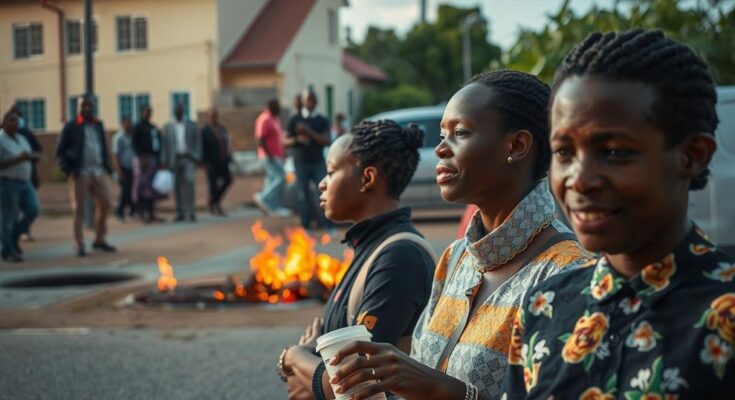Mozambique’s president-elect Daniel Chapo calls for unity and non-violence amid unrest following his disputed election victory, which triggered protests leading to fatalities and thousands fleeing to Malawi. Chapo pledges to be a leader for all citizens after his upcoming inauguration in January.
Daniel Chapo, the president-elect of Mozambique, has called for national unity and non-violence following a turbulent week of protests and violence triggered by his party’s contentious election victory. Chapo, representing the ruling Frelimo party, expressed regret over the unrest and committed to being a leader for all citizens after his inauguration scheduled for mid-January. The situation escalated following the confirmation of his disputed electoral win by the constitutional court, leading to significant civil unrest, including fatalities and mass displacements toward neighboring Malawi.
The unrest erupted after Chapo’s election victory on October 9, which has been marred by allegations of vote manipulation from opposition parties, particularly the party led by Venancio Mondlane. As protests persisted, reports indicated that at least 21 individuals lost their lives, with estimates suggesting that the overall death toll connected to electoral disputes may exceed 261. Key cities including Maputo, Matola, and Beira have witnessed significant disturbances; businesses were looted, and a prison break occurred amid the chaos.
In light of the crisis, over 2,000 Mozambican families have reportedly sought refuge in Malawi, highlighting the dire humanitarian situation following the election fallout. Local officials expressed the urgent need for assistance for the fleeing families, while regional leaders have indicated a willingness to facilitate dialogue to quell the unrest and stabilize the political landscape. This ongoing conflict underscores the political volatility in Mozambique and the broader regional implications given the economic interdependencies.
The current unrest in Mozambique is rooted in the disputed election held on October 9, where Daniel Chapo of the Frelimo party won with a reported 65 percent of the vote, as confirmed by the Constitutional Court. This election has been characterized by significant allegations of vote-rigging, leading to widespread protests and unrest. The traditional leadership of Frelimo since 1975 continues to face challenges from opposition parties, particularly among younger voters who are increasingly discontented with the political status quo. The recent violence has further strained social cohesion and exacerbated economic challenges, prompting thousands to flee to neighboring countries for safety.
In summary, Mozambique’s current political turmoil has necessitated urgent calls for unity and non-violence from president-elect Daniel Chapo in response to the public unrest following a disputed election. The situation has resulted in tragic loss of life, significant civil disobedience, and a humanitarian crisis with families seeking refuge in Malawi. The international community and regional leaders are similarly urging dialogue to resolve the political deadlock and restore stability to the nation.
Original Source: www.aljazeera.com




